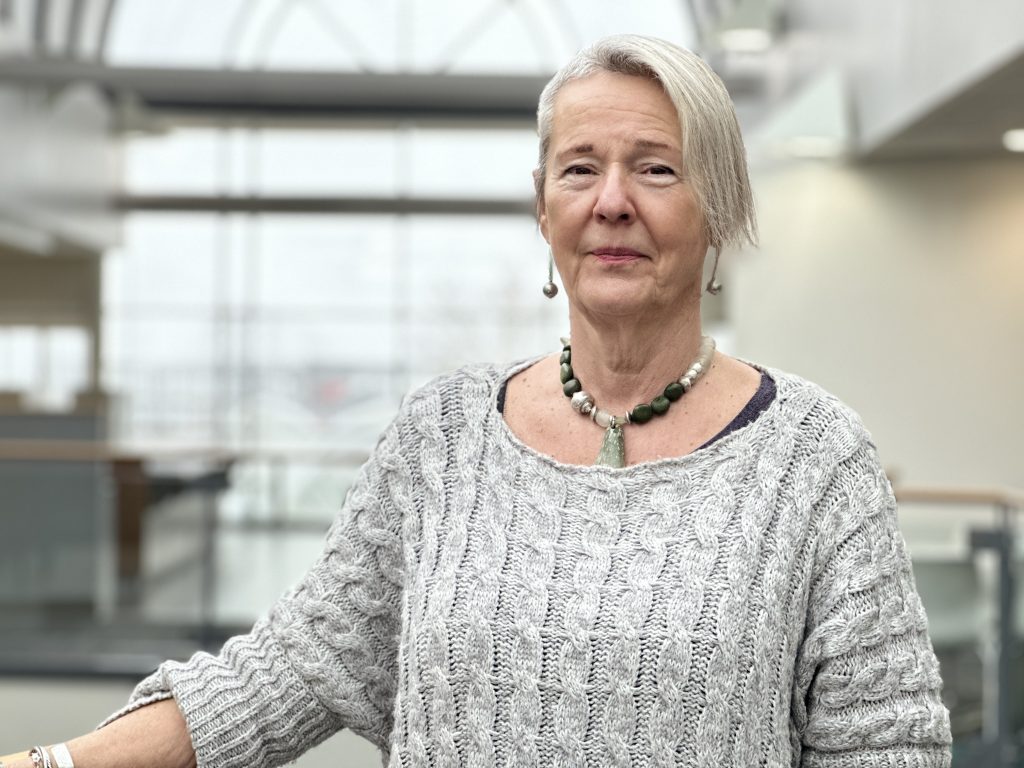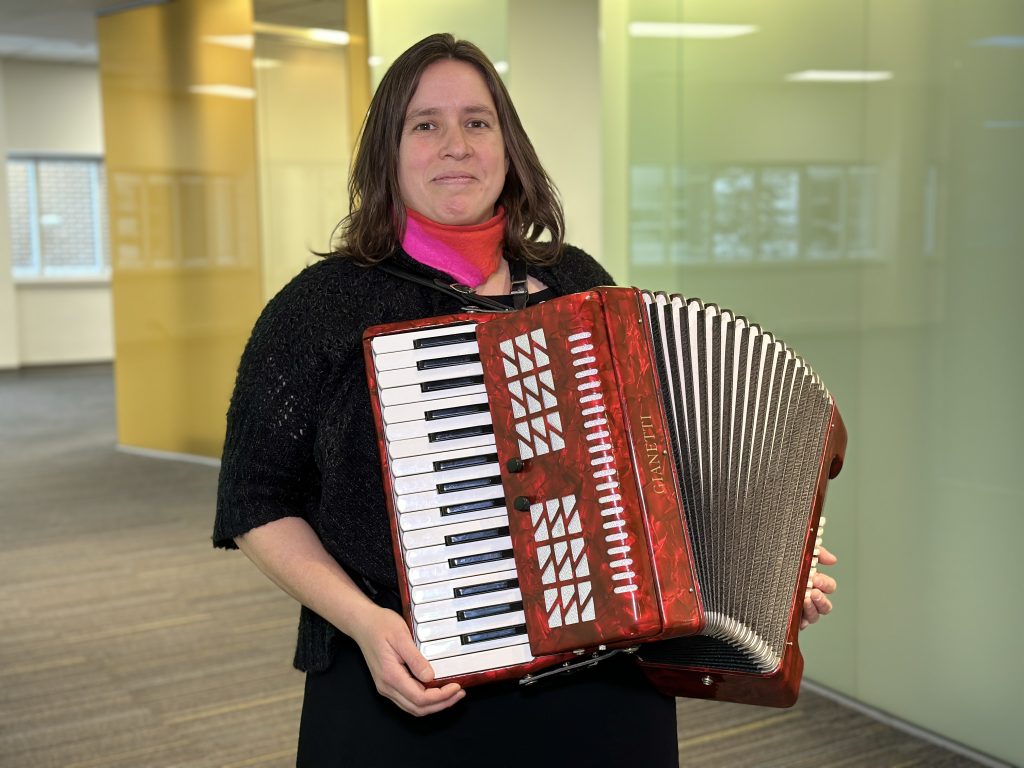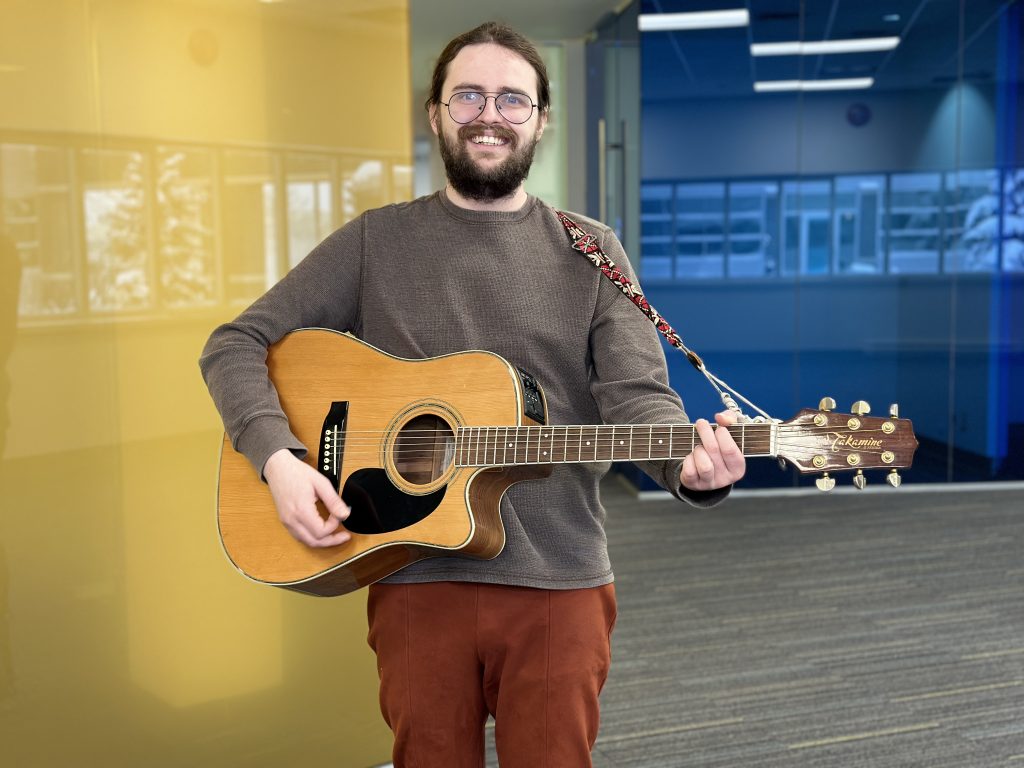How some Manitoba hospital patients are healing through music
Posted December 17, 2024 6:14 pm.
Last Updated December 18, 2024 9:58 am.
Shirley Grierson has seen music reach the deepest parts of people.
The executive director of Artists in Healthcare Manitoba, which partially funds the “Music to My Ears” program, recalls the early days of the initiative.
In one instance, she was watching a normally unresponsive patient listen to a musician playing “Yesterday” by the Beatles.
“She turned her head and her eyes actually… she looked at him,” Grierson recounted. “And I thought, that’s cool. She looked at him and then she smiled. And then she started to move back and forward and slowly tap herself in time with the music.
“(The nurse) said, in that moment, she woke up.”

Then there was the instance when Grierson witnessed a “completely unresponsive” patient respond by singing along to music.
“We see this all the time,” she told CityNews.
The “Music to My Ears” program sees skilled musicians playing for patients in Manitoba’s hospitals or clinics. It’s a calming distraction from the stress associated with illness.
“It brings a lot of joy, and especially around the holidays,” said musician Colton McKillop. “Everyone likes to hear some tunes at the holidays.”
“Just bringing something different, a little bit of joy or maybe a song they recognize,” added fellow musician Anne-Marie Williot. “Even if they don’t recognize the song, I find people really enjoy the music.”

The beneficial effects of music long ago escaped the realm of pure myth.
Learning to play an instrument, for example, sharpens how the brain processes sound and can improve children’s reading and other school skills.
Stroke survivors who can’t speak sometimes can sing, and music therapy can help them retrain brain pathways to communicate. Similarly, Parkinson’s patients sometimes walk better to the right beat.
“Sometimes as musicians, we end up helping people emote, helping people feel their emotions that they’re feeling,” Williot said. “Maybe they’ve been having a really hard time with this illness that they’re going through. Sometimes they just talk to us. … To have somebody that they can cry with or that they can laugh with that’s a special guest at the place where they’re trying to heal, I think it’s important to bring it there.”
“It’s just a very comforting thing,” added McKillop. “I think back to a couple of occasions working at some of the long-term care homes, a family would be visiting — someone who is in their very last days — and the family’s all gathered together. They’re like, ‘hey come and play this song, they love this song.’ Those moments, it’s like, it’s very heavy but you see kind of the real value of music and what the value can bring to people’s lives. Bring joy and ease the transition.”

Williot and McKillop are among the 20 “Music to My Ears” musicians who play in 17 different facilities in Manitoba.
“It just kind of brings that joy to people and it brings that, sometimes catharsis, to people,” explained Williot, who says she enjoys playing in “unconventional spaces.”
“It’s just nice to see people light up when you play songs that they recognize… any kind of music they enjoy,” said McKillop.
–With files from The Associated Press








